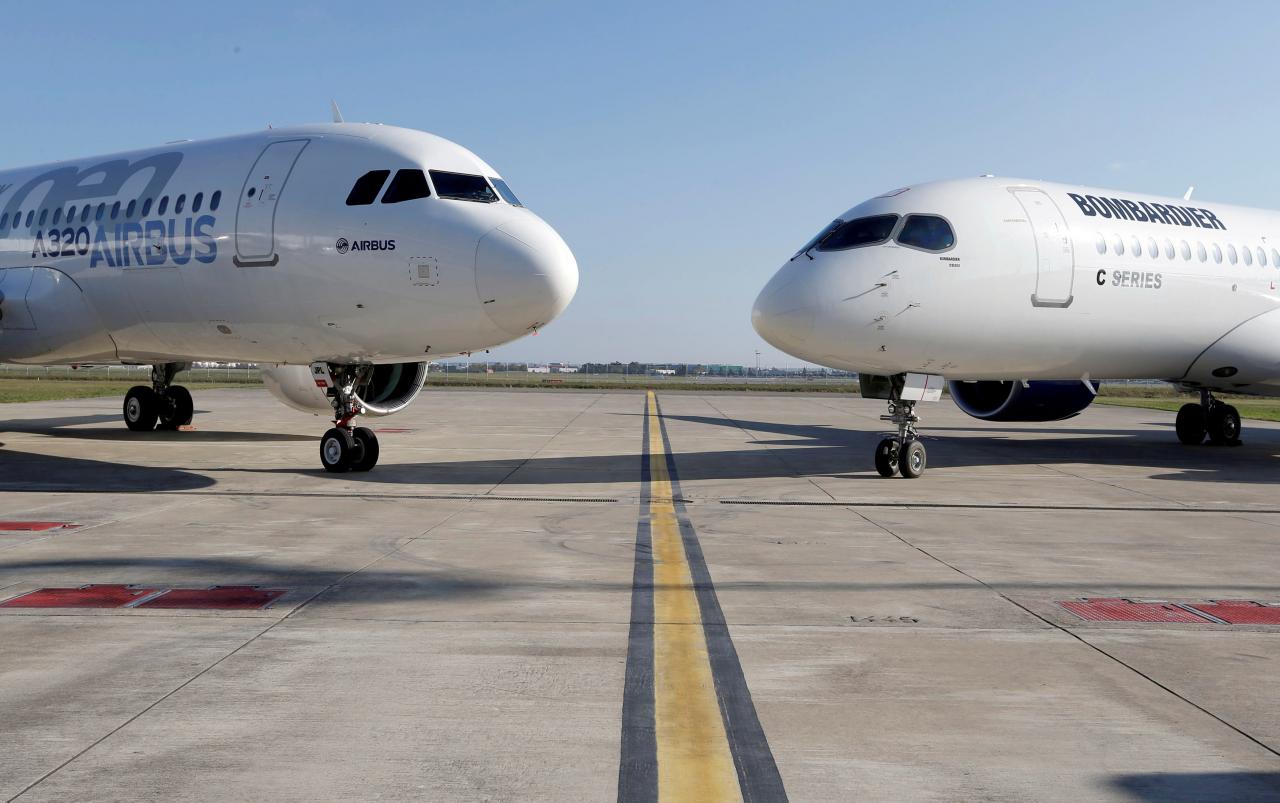Relief for Bombardier
January 27, 2018 | Expert Insights

In a move that surprised many, U.S. International Trade Commission voted unanimously that Boeing (BA)was not harmed by Bombardier and its all-new C Series jet. The two organizations have been locked in a bitter trade dispute that has caused ties between US and Canada to sour.
The vote puts an end to two tariffs, totaling nearly 300% that the U.S. Commerce Department wanted to impose on Bombardier.
Background
Bombardier Inc. is a multinational aerospace and transportation company based in Canada. It was founded 75 years ago and originally it was a maker of snow machines or snowmobiles. However, over the years it has grown into a large manufacturer of regional airliners, business jets, mass transportation equipment, and recreational equipment, and a provider of financial services. In 2016, its total assets was valued to US $22.83 billion. Delta in 2016 ordered up to 125 of the 110-seat C Series jets. Deliveries were expected to begin in spring 2018, but those plans are in question pending the outcome of the case.
American company Boeing, claimed that Bombardier unfairly benefited from government bailout subsidies.
The Relations between Canada and the US have historically been extensive, given a shared border and ever-increasing close cultural, economical ties and similarities. The shared historical and cultural heritage has resulted in one of the most stable and mutually beneficial international relationships in the world.
Protectionism has become a defining theme for world leaders, especially US President Donald Trump. He has already pulled US out of the Trans-Pacific Partnership. He was also a vocal critic of NAFTA while campaigning. He said, “NAFTA is the worst trade deal maybe ever signed anywhere, but certainly ever signed in this country.”
Analysis
The historically strong ties between US and Canada have been tested in the recent years especially in the advent of Trump Presidency. A vocal critic of NAFTA, he has threatened to end the treaty multiple times. In 2017, it was reported that negotiations between US, Canada and Mexico are not progressing. Even Canadian Prime Minister, Justin Trudeau, who had earlier struck an optimistic tone revealed that the talks were close to breaking down entirely.
In addition, tensions have flared due to US authorities announcing plans to slap import tariffs close to 300 percent on Bombardier planes. Just before heading to the US for NAFTA negotiations, Trudeau threatened the US that he would block his country’s armed forces from buying Boeing aircraft if the US went ahead with its plans.
In what is being regarded as a massive win for the Canadian vehicle manufacturer, A U.S. trade commission overturned the ruling that imposed the heavy duties. The vote puts an end to two tariffs, totaling nearly 300% that the U.S. Commerce Department wanted to impose on Bombardier. Upon the decision, shares for Bombardier rose by 15%.
Boeing in a statement said it was "disappointed that the International Trade Commission did not recognize the harm that Boeing has suffered from the billions of dollars in illegal government subsidies that the Department of Commerce found Bombardier received and used to dump aircraft in the U.S. small single-aisle airplane market. While we disagree with the ITC's conclusion today, we will review the Commission's more detailed opinions in full as they are released in the coming days.” Boeing can still appeal this decision.
“It’s reassuring to see that facts and evidence matter,” said Chad Bown, a senior fellow at the Peterson Institute for International Economics in Washington. “This part of the trade policy process works unimpeded despite President Trump’s protectionist rhetoric.”
Assessment
Our assessment is that the unanimous decision by the U.S. International Trade Commission is yet another complicated twist to the ongoing NAFTA negotiations. It is likely that US President Donald Trump with his “America First” message will further sour on talks regarding trade between US and Canada. Other bitterly contested issues include tariffs on Canadian lumber and U.S. milk.
This decision, however, will be received positively by companies across the world that conduct business in the US.








Submitted by RN Ganesh (not verified) on Tue, 01/30/2018 - 05:46
While protectionism is fast
While protectionism is fast becoming a dirty word, the US has no qualms about following it. America has set up a credible and effective instrument to ensure that no US industry is injured, nor is a new one prevented from being established, by the import of goods from abroad. Our own system seems less organised, and a comparative evaluation might possibly show that it is far from consistent.
The lesson for India should be that protectionism under the supervision of an independent (even independent of the Government, as in the US case) and permanent body such as the USITC would further the country's long-term interests.
Submitted by synergia on Sat, 09/07/2019 - 12:56
Thank you for your insight
Thank you for your insight